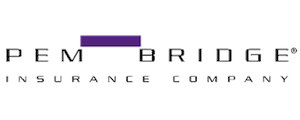
Get Cheap Home Insurance in Etobicoke
Compare home insurance quotes from 50+ providers in a single search!
Jump straight to...
- How home insurance works in Etobicoke
- How to get the cheapest Etobicoke home insurance quote
- How much does average home insurance cost in Etobicoke?
- How does home insurance in Etobicoke compare to the Greater Toronto Area?
- Factors that determine your Etobicoke home insurance premium
- Top home insurance companies in Etobicoke
- Frequently asked questions about Etobicoke home insurance
How home insurance works in Etobicoke
If you’re buying a home in Etobicoke, or anywhere else in Toronto, or Ontario, you’re probably going to need home insurance. While it’s not legally mandatory (unlike a certain other insurance type), it’s often required by mortgage lenders, which makes it more or less mandatory anyway. Lenders require it because they want you to keep paying your mortgage even if your home gets damaged. It’s an easy way for them to protect their investment. Home insurance also protects you, so in a way, it's a win-win for both.
Given that your home is likely to be your most expensive purchase, you should know what your insurance will cover, in case something happens. Here are the basics:
- Property: This includes the house itself as well as the surrounding land and any buildings on it, such as your garage.
- Contents: This covers your possessions. Should you lose some or all of them (as a result of a covered peril), they will get replaced. Do note that the more expensive possessions, such as jewelry or collectibles, may need extra coverage due to their higher value.
- Liability: Should someone get injured (or worse) on your property and decide to sue you as a result, this will cover the costs. This will also cover you if you unintentionally damage someone else’s property. Very handy to have.
- Additional living expenses: What if your home becomes unlivable due to a particular peril? You’d have to live somewhere else, of course. This will cover the expenses of doing so, including accommodation and food. Talk to your insurer to find out exactly what’s covered.
Home insurance policy types
There are multiple insurance policy types, ranging from the ones that cover the bare minimum to the ones that cover almost everything. Your choice will primarily depend on how much you want (or can) pay in premiums.
Here are all the insurance types:
- Basic: Also referred to as ‘named perils,’ this will protect you against the perils explicitly listed, or ‘named,’ in your policy. If a peril is not named, then you’re not covered for it. As the name suggests, this is the most basic coverage you can get.
- Broad: This one protects you from all perils, aside from the ones listed as exclusions. It also covers your possessions, though only against named perils, similarly to basic insurance.
- Comprehensive: Also known as ‘all perils,’ this one covers both your property and its contents, protecting them against all perils, except for certain named exclusions.
- No-frills: No-frills is similar to basic coverage, in that it covers only the bare minimum. The difference is that no-frills is meant for homes that don’t meet typical home insurance standards. This includes homes with issues that are highly likely to cause damage down the road, such as brittle pipes, for example. If you end up going with no-frills, make sure to address those issues, so you can switch to better coverage (and protect your property more thoroughly).
Commonly covered perils
Realistically, there’s an infinite amount of perils that may endanger your home, and insurers, being human, can’t cover them all (for instance, a comet crushing your home probably won’t be covered by anyone). However, some perils are more common than others, and as such, they are the most likely ones to be covered by default. Here’s what they are:
- Fire and smoke
- Explosion
- Lightning
- Theft and vandalism
- Aircraft or vehicle impact
- Water damage (excludes flooding)
- Wind
- Falling objects (excludes objects moved by snowslide, mudslide or earthquake)
- Window breakage
Extra coverage
Since not even a comprehensive policy will cover everything, you may consider purchasing add-ons, or ‘endorsements,’ to cover certain exclusions. Here are some of the most common ones:
- Overland flooding: Believe it or not, most policies actually overlook overland flooding – flooding that occurs when rivers, lakes and other bodies of water flow out of their bounds. In Etobicoke, Etobicoke Creek and Humber River are known to cause riverine floods, on occasion, so there may be some risk to your property if you’re close by. That said, the likelihood of your Etobicoke property being affected by this is low.
- Sewer back-up: The more likely kind of flooding to occur in your Etobicoke home is due to backed up sewage pipes, toilets, drains or showers. This is more common in Etobicoke than you might expect – mainly due to the area’s aging sewage systems.
- Earthquake: Earthquakes and other types of ‘earth-based’ perils, like landslides, snowslides and volcanic eruptions, also tend to get overlooked by most insurance policies. Fortunately, Etobicoke is safe in this department, even though earthquakes do sometimes occur here (often causing minimal damage). If you’re concerned, talk to your insurer.
- Windstorm: Windstorms are also quite common in Etobicoke. This endorsement will protect your home if a windstorm damages the home’s structure, breaks its windows, destroys your possessions or showers your home in debris. Your current policy may already cover this, so confirm with your insurer.
- Valuable items: Your jewelry, collectibles, artwork and similar expensive items may need extra coverage. This endorsement will provide that. Do note that you may not need this – so be sure to properly evaluate all your possessions before purchasing this.
How to get the cheapest Etobicoke home insurance quote
Get multiple Etobicoke home insurance quotes in the time it takes to get just one.
1. Enter Postal Code
Start with your postal code!

2. Enter Your Information
Answer a few quick questions about yourself and your home.

3. Compare Your Quotes
Compare home insurance coverage and quotes from 50+ insurance companies.
We've got hundreds of 5 star reviews
2,247 reviews on TrustPilot. See some of the reviews here.
Fran
Curtis
Robert Clarkson
Vincenzina Perri
Keith
Dev
Georgia
Shirley Munro
Hoang Tran
Alnoor
Michael Benninger
Gene
D on
Robert
Remonia Thompson
Rich
Luis
How much does average home insurance cost in Etobicoke?
The average home insurance cost in Etobicoke is $1,469 per year, according to the RATESDOTCA Insuramap data.
Though Etobicoke is relatively safe from major perils such as earthquakes, wildfires and overland flooding (for the most part), it does get affected by things like sewer drain back-ups, windstorms and severe winter weather. The latter can cause damage to your roof, pipes and overall structure of the home, resulting in leaks, floods and other water-related damage.
That said, Etobicoke doesn’t have the most expensive home insurance in Ontario. In fact, its average premium sits comfortably in the middle. The most expensive Ontario city for home insurance is actually LaSalle, which has the average annual rate of $2,411. The cheapest one is Ajax, with the average annual rate of $1,068. Etobicoke’s average is very comparable to Toronto’s, however, which sits at $1,467 per year. (Note that Toronto’s average excludes areas like Etobicoke and North York, which are counted as separate cities, even though they’re technically part of Toronto.)
How does home insurance in Etobicoke compare to the Greater Toronto Area?
| Estimated annual premium | % difference compared to Etobicoke | |
| Etobicoke’s average home insurance premium | $1,469 | - |
| Ontario’s average home insurance premium | $1,487 | +1.2% |
| Toronto | $1,467 | -0.1% |
| Caledon | $1,396 | -5.0% |
| Orangeville | $1,394 | -5.1% |
| Brampton | $1,361 | -7.4% |
| Newmarket | $1,287 | -12.4% |
| Mississauga | $1,250 | -14.9% |
| Burlington | $1,227 | -16.5% |
| Aurora | $1,210 | -17.6% |
| Pickering | $1,195 | -18.7% |
| Markham | $1,182 | -19.5% |
| Richmond Hill | $1,167 | -20.6% |
| Uxbridge | $1,148 | -21.9% |
| Milton | $1,143 | -22.2% |
| Oakville | $1,133 | -22.9% |
| Oshawa | $1,116 | -24.0% |
| Whitby | $1,093 | -25.6% |
| Ajax | $1,068 | -27.3% |
Average insurance premium numbers are according to data from RATESDOTCA Insuramap (gathered in 2022).
We’ve already mentioned a few factors that may affect your Etobicoke home insurance premium, such as the likelihood of floods, but there are many others, including these:
- Home replacement cost: How much do you think your home would cost to rebuild if it were completely destroyed? To evaluate this, insurers usually examine the home’s age, number of floors, square footage and construction (among other things). The higher this cost, the higher the premium.
- Home’s location: If your home is located in a place more prone to certain perils than others, such as flooding for instance, it will affect your insurance cost. The more perils your property may be affected by, the higher the insurance premium. And vice versa.
- Home’s age: This matters not just when it comes to your home’s replacement cost, but its overall riskiness. Older buildings are more likely to have defective pipes or wiring as well as structural issues that may lead to more damage down the road. As a result, older homes cost more to insure – unless they have been renovated.
- Home’s square footage: The more space your home occupies, the more contents it’s likely to have. It would also (in all likelihood) cost more to repair or rebuild. This, of course, means higher premiums.
- Home’s proximity to fire halls and hydrants: The farther your home is from a fire hall or hydrant, the longer it will take to save, should it catch fire. And the longer your home is on fire, the more damage it will receive. That’s why such a home would cost more to insure. This is usually more of a problem in rural areas, where homes are far away from most amenities. Note that you may also be billed for emergency fire response, if not insured, so keep that in mind.
- Home renovations: Have you done renovations lately? If so, you might’ve inadvertently increased your home insurance premiums – unless, of course, you’ve neglected to mention this to your insurer. Keep in mind that if you don’t notify your insurer about renovations, your payout may not match the current value of your home.
- Home security and maintenance: If your home has fire and burglar alarms, along with other safety devices, it may be deemed more secure against certain perils, lowering your premiums. Likewise, if you take care of your home by fixing that leaky roof or replacing its aging pipes, the home will cost less to insure.
- Your claims history: This is where it gets a little more personal. If you’ve made multiple home insurance claims in the past, you’re likely to make more in the future. Or at least, that’s how insurers see it. This makes you a ‘riskier’ client in their eyes, which means your premiums will be higher.
- Your credit score: It appears that, statistically, homeowners with good credit scores are less likely to make claims than those with bad credit scores. Is this correlation real? Insurers certainly seem to think so. Real or not, having a good credit score is vital for many reasons (like getting a good mortgage rate, for instance), so do your best to keep it good, or improve it, if necessary.
- Your mortgage: If you have paid off your mortgage, you may be entitled to a 10%-20% discount on your home insurance premium. Ask your insurance provider about it, if they haven’t offered it to you already.
Top home insurance companies in Etobicoke
| Company | Type of Company | Phone | Address |
|---|---|---|---|
| All-Risks Insurance Brokers Ltd. | Insurance broker | 416-551-8651 | 4941a Dundas St W, Etobicoke, ON M9A 1B6 |
| Allstate Insurance: Toronto West Agency | Insurance agency | 647-362-5282 | 4-1555 The Queensway Building D, Etobicoke, ON M8Z 1T8 |
| Billyard Insurance Group – Etobicoke | Insurance broker | 647-557-8773 | 209-5405 Eglinton Ave W, Etobicoke, ON M9C 5K6 |
| Insurance Hotline.com | Quotes comparison | 1-855-821-7312 | 100-360 Adelaide St. W, Toronto, ON M5V 1R7 |
| LowestRates.ca | Quotes comparison | 1-855-487-6911 | 401-1910 Yonge St., Toronto, ON M4S 3B |
| McKee & McKee Insurance Brokers | Insurance broker | 416-622-3774 | 385 The West Mall, Etobicoke, ON M9C 1E7 |
| RATESDOTCA | Quotes comparison | 1-844-726-0907 | 100-360 Adelaide St. W, Toronto, ON M5V 1R7 |
| RBC Insurance | Insurance company | 416-231-6494 | 2-5322 Dundas St W, Etobicoke, ON M9B 1B3 |
| Scoop Insurance | Insurance brokers | 416-955-6286 | 22-300 Lincoln St., Welland, ON L3B 4N4 |
| Unison Insurance and Financial Services Inc. | Insurance agency | 416-407-3712 | 40 Janda Ct, Toronto, ON M9W 0A5 |
Why use InsuranceHotline.com to compare home insurance quotes online?
There are lots of reasons to compare!
SAVE MONEY
On average, shoppers save $300 on home insurance comparing quotes with us.
SAVE TIME
In just a few minutes you can compare quotes from more than 50 insurers.
IT'S FREE
There's no catch or fine print; our service is absolutely free for you to use.
IT'S EASY AND QUICK
You're just a few quick questions away from your custom quote.
YOUR INFORMATION IS SAFE
Your details are secure. Look for a locked padlock in your browser as well as https.
WE RESPECT YOUR PRIVACY
Your privacy is important to us. We never share your details without your consent.
Frequently asked questions about Etobicoke home insurance
Find answers to all your Etobicoke home insurance questions here.
How can I find the cheapest home insurance quote in Etobicoke?
The easiest way to find the cheapest home insurance quote in Etobicoke is by comparing quotes from several insurers in the area. You can either contact them one by one (not recommended) or use a comparison website, such as InsurnaceHotline.com, to compare them all in a few clicks (recommended). The added benefit of the latter is that insurers will know they are competing against each other and try to offer their best rate.
If the quotes you find are still not cheap enough, you can try the following:
- Bundle multiple insurance policies: Combine your home insurance with your car insurance under one provider. Bundling policies can net you a discount of 10%-15%, so don’t neglect this opportunity.
- Eliminate or minimize certain risk factors: You should address any factors that are likely to increase your home insurance premium. Your credit history, home maintenance, among other factors, are all within your control, so take the time to mitigate them.
- Amount of coverage: Get the policy that matches your needs and avoid paying for any protections that won’t be of use to you.
What kind of risks do Etobicoke homeowners face?
Etobicoke is generally a safe location for owning property. That’s why its average insurance rate is relatively cheap – compared to other cities in Ontario. However, there are still risks that may affect you, including the following:
- Extreme cold and winter storms: Blizzards, ice storms and heavy snowfalls can damage the structure of your home and lead to frozen or burst pipes, which in turn can cause flooding.
- Windstorms: Hurricanes and even tornadoes do sometimes have an impact on Etobicoke. Rain, high winds, lightning and hail can both damage your property and even cause injury or death. It’s worth getting insured against this.
- Flooding: Basement flooding due to backed up sewage drains are common in Etobicoke. The area also sits amid several creeks and rivers, which, on occasion, can cause riverine floods – though if you’re not in their vicinity, you’re most likely safe. Flooding can impact the structure of your home as well as lead to mold, increased humidity and similar issues, all of which are damaging to both your health and property.
Do I need to update my Etobicoke home insurance provider if I am running a short-term rental on Airbnb or Vrbo?
Yes. Unless you don’t want to be fully covered. By offering your property, or parts of it, to someone else for rent, you’re changing the risk, which will affect how it is underwritten. So, if something ends up damaged, and you haven’t notified your insurer, you may not get the coverage you need.
How can I file a home insurance claim in Etobicoke?
Should your home and/or its contents end up damaged or stolen due to a covered peril, notify your home insurance provider as soon as possible, and they’ll walk you through the rest of the process. Note that if filing a claim is avoidable, consider not filing one, as doing so can lead to higher premiums in the future.
When filing a claim, we also recommend having a list of all the damaged or lost items, with explanations as to what happened to them (plus photos of the damage, if available). You should also note the value of items. In fact, it’s best to do an inventory of all your possessions well ahead of time, before you even purchase your insurance, so you have it handy right away, should a disaster strike.
Once all of this is done, your assigned claims advisor should contact you shortly.












